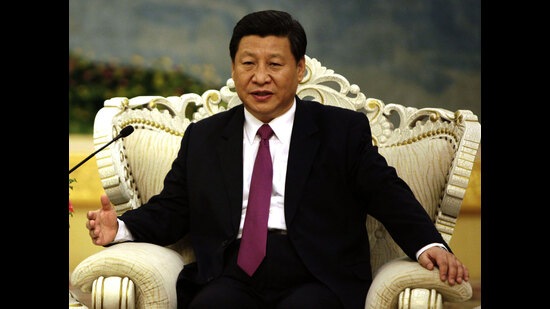There are signs of unease in China’s domestic politics
Xi Jinping's campaigns to bolster his position within the Chinese Communist Party also indicate discontent within the party
In recent years, political uncertainty has marked the period prior to a national congress of the Chinese Communist Party (CCP). Ever since the death of Deng Xiaoping, no transfer of power between the general secretaries of the CCP has been without incident. There was friction in 2002 during the handover from Jiang Zemin to Hu Jintao and again in 2012 when Bo Xilai, a Politburo member, made an audacious bid to beat Xi Jinping to the top job.

Another party congress is due later this year. The circumstances are, however, different. Xi, who has accumulated more power than his predecessors (except Mao), is seeking a third term. But this goes against the convention established at the 17th Party Congress in 2007, which specified that the general secretary should not get more than two terms. Moreover, age limits were also laid down for the elevation of cadres to senior posts in the Politburo and Politburo Standing Committee. Since Xi abolished the tenure and age limits in 2017, many party members have been dissatisfied.
A clear pointer to the brewing discontent is the commentary (January 8) posted on the website of the party’s anti-corruption watchdog body, the Central Discipline Inspection Commission (CDIC). Setting the tone for the party congress, it spoke of keeping up the “overwhelming” pressure against corruption. In an ominous warning, it stated that some senior members were under suspicion for opposing Xi and were likely to be punished. “There are still people who do not learn from their lessons and run large-scale gangs and gangs within the party, seriously undermining the unity of the party,” it said.
The last instance of cadres being accused of controlling “gangs”, or factions, was in September 2021, when Sun Lijun, a vice-minister of the public security bureau, was arrested. Among the charges levelled against him were: “To achieve his political objectives ... [he] resorted to whatever means ... forming gangs and factions, seizing control of key [security] departments, seriously undermining the unity of the party, and causing extreme danger to the political security [of the party].” Again, the message was clear — Sun was working against Xi.
Xi’s campaigns to bolster his position within the CCP also indicate discontent within the party. Xi’s recent campaign — “two establishments” — was launched on December 23. The following day, the Guangming Daily explained that Xi must be endorsed as the central figure of the party and his thoughts as one of the party’s central guiding principles. It stated that “Xi Jinping’s thinking on socialism with Chinese characteristics in the new era is a major historic contribution of the Sixth Plenary Session” and added that the “two establishments” reinforce Xi’s position as the “core of the Party”.
From 2020, CDIC, along with the rest of the security apparatus, underwent a year-long “cleansing” of personnel, with those suspected of wavering loyalties being weeded out. Predictably, CDIC’s January 4 regulations mandated that the fundamental political responsibility of its personnel was to ensure Xi’s central position at the helm of affairs. The importance of loyalty to Xi is being impressed on all party members. On January 8, the CCP CC Central Party School, the crucible for training upwardly mobile party cadres, graduated 1,117 student cadres. In a statement, the school said that students had imbibed “a deeper understanding of the decisive meaning of “two establishments”.
Meanwhile, the campaign against corruption continues. This month the CDIC announced that senior cadres in government and State-owned enterprises, including two vice-chairmen of regional governments from Tibet and Guangxi, are undergoing disciplinary review. To reinforce the warning, the State-run CCTV began a telecast of Sun’s confession from January 15. The release of the CDIC’s commentary before the 20th Party Congress, which is crucial for Xi, warns cadres that those with suspect loyalties will be duly punished if they don’t fall in line.
Jayadeva Ranade is former additional secretary, Cabinet Secretariat, Government of India. He is president, Centre for China Analysis and Strategy.
The views expressed are personal
Continue reading with HT Premium Subscription




